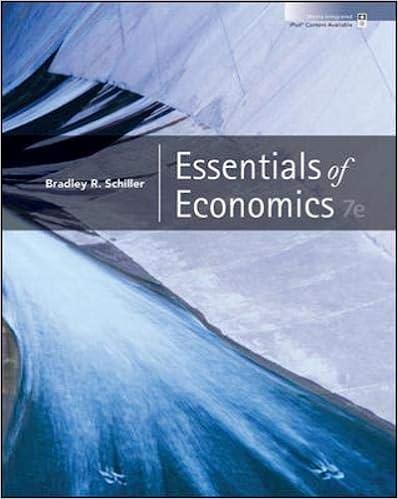Question
b)The information below is a representation of the IS-LM model for some hypothetical economy. Use it to answer all parts of this question. Consumption: C
b)The information below is a representation of the IS-LM model for some hypothetical economy. Use it to answer all parts of this question. Consumption: C = 1400 + 0 .75Yd+ 0.08(M/P) Net Exports: NX= 400 -0.25Yd-10r Taxes: T = -200 + 0.2Y Disposable Income: Yd= Y -T Investment: I = 140 -30r Governmental Purchases: GDP G = 200 -0.2(Y -Yp) where Yp = potential Aggregate Demand: AD = C + I + G + NX Goods Market Equilibrium Y = AD Money Demand: Md/P =0.25Y -50r Money Market Equilibrium: M = Md Endogenous VariablesExogenous Variabes C, Yd, NX, r,T, AD,Y,I,Md,G Yp,P,M i)Derive the IS curve. Indicate its slope. ii)Derive the LM curve. Indicate its slope. iii)Determine the equilibrium value for Y, if M = 2,200, P = 1, & Yp =4,000. iv)Based on the results in c, is the governmental budget in surplus, deficit, or balance? If surplus or deficit, indicate the magnitude v)Show how the government might use fiscal policy (e.g., change in the autonomous portion of G) to bring GDP (Y) in line with Yp. Question Two a)Consider an economy described by the following equations: =+0.75(), =187030, =228070, =3000, =12000.1, =760+0.2 (/)=0.5-24 /=4760 i)Using the above numbers: find 1.1autonomous planned spending at a zero interest rate, 1.2autonomous planned spending as a function of interest rate, 1.3the multiplier 1.4the equation for the IS curve. ii)Derive the LM curve. iii)Find the equilibrium values of income and interest rate b)What is meant by a "Liquidity Trap"? How does a liquidity trap happen? What is the shape of the LM curve under this trap? Describe the economic intuition for what happens when there is an increase in the supply of money, i.e. does it have an impact on output, and if so, how? If it does not have an impact on output, what happens? c)What is meant by an "Investment" trap? How does it happen? What is the shape of the IS curve under this trap? Question Three a)The IS-LM curve is a macroeconomictool widely used to analyze effects ofeconomic policy i)What do the letters LM mean? ii)Define an LMcurve. iii)Drawing on the theory of liquidity preference, a simple theory in which the interest rate is determined by money supply and money demand, graphically derive the LMcurve. iv)Suppose a wave of credit card fraud causes consumers to use cash more frequently in transactions. Use the Liquidity Preference model to show how these events shift the LMcurve. The investor decision on how to allocate capital between bonds and cash is largely determined the current and future expectations of interest rate levels. i)Briefly explain the concepts (bi) investment trap (bii) liquidity trap ii)What happens to the LM curve if interest rate is near zero? iii)Using your LM curve obtained in (c), show how the LM curve shifts when the central bank increases the supply of money. Does income change? Explain c)Using the Keynesian cross discussed in class, show how an increase in government taxes shifts the IScurve.
Step by Step Solution
There are 3 Steps involved in it
Step: 1

Get Instant Access to Expert-Tailored Solutions
See step-by-step solutions with expert insights and AI powered tools for academic success
Step: 2

Step: 3

Ace Your Homework with AI
Get the answers you need in no time with our AI-driven, step-by-step assistance
Get Started


